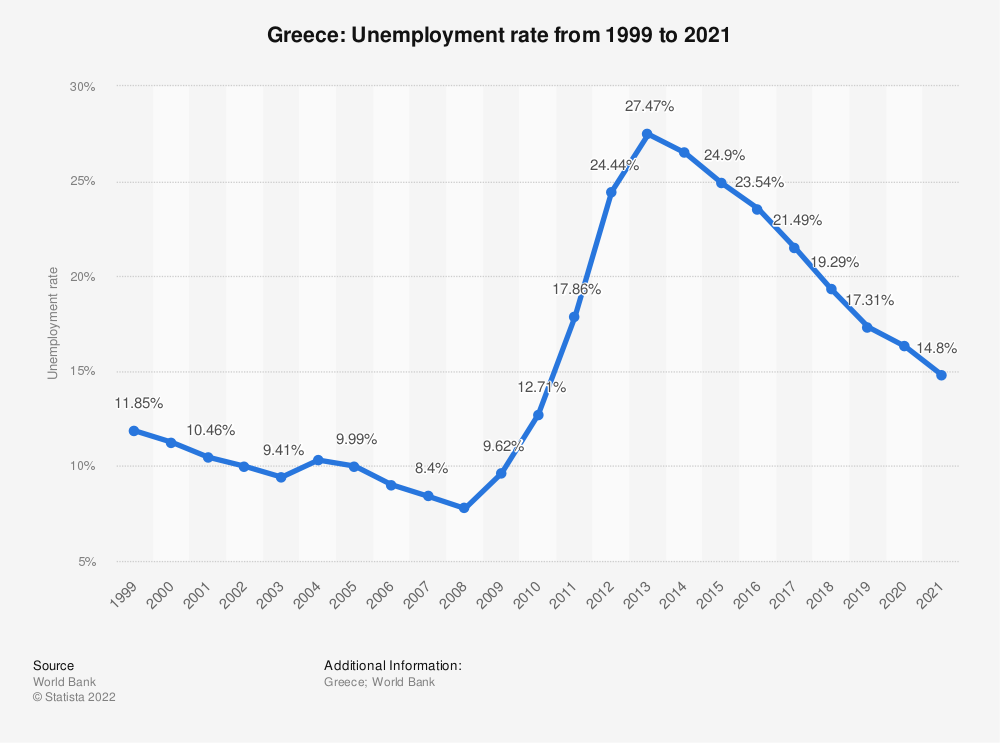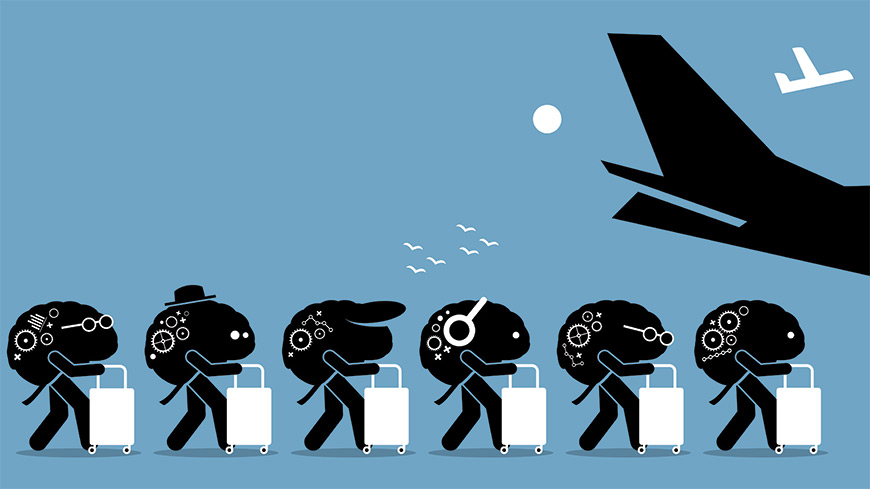By Andreas Gkoumplias,
Brain drain is the situation in which the most highly-trained or highly-qualified people of one country emigrate to another country for various reasons. It is an unpleasant situation for every country, having to watch your nation’s most qualified and most promising people migrate somewhere else, but in our ever-changing world it is a sobering reality, and, unfortunately, Greece is not an exception.
For our country, the brain drain started and evolved during the years of the great economic crisis that struck. An estimated of over 400,000 people have decided to leave Greece from 2010 onwards, migrating mostly to European countries, in search of a better future for themselves and their families. To no one’s surprise, this situation was not a first. For the last few decades, highly educated people that graduated and even got a Ph.D. in our country have been choosing to pursue a more promising and rewarding career abroad, so as to find a way to realize their potential. In this article, we are going to try to take a look and inspect the causes of the brain drain that is still going on strong until this day.

Starting off with probably the number one cause, the huge unemployment rates were always a problem in our country. Things just got worse during the severe economic crisis that Greece went through that forced politicians to enforce either huge salary reductions or even fire people, simply enough because there was not enough money to pay everyone. That led to people searching for alternatives elsewhere, and most European countries provided those, especially to those with high qualifications. Basically, unemployment combined with the huge job insecurities that existed at the time, as none could speak or know anything certain about the close future, and these two major causes paved the way for the very first migration waves to begin.
Next on, income reduction and over-taxation were and still are a thing nowadays forcing people out of the country. Especially in the early years of the crisis, income reduction was a huge thing that affected all jobs simultaneously, with reductions of up to 40% of the job’s salary. Including the loss of privileges like Christmas and Easter gifts and following the increased taxation, all of which was done so that the country could get back on its feet and not declare bankruptcy, the living conditions basically became very miserable for people living here. Whereas, countries of the European Union were not affected as much so basically they were just the perfect solution to the existing problem.

Last but not least, a very important factor to the brain drain that especially younger people realised is the possibilities for a better future. As it is understandable, Greece could not back then and even now cannot provide those possibilities. Not because we do not want to, but because our country is mainly destined to create highly qualified people not to ‘’nourish’’ them. Salaries are not very high, even with high qualifications, the ability to further develop your skills and evolve as a person is very limited and because of that people seek to find as many opportunities to live a better life themselves.
To summarise this article, Greece unfortunately has been and still is only considered as a brief passage, either to native people or to those seeking to better their future. That does not necessarily mean that the country is bad, with a little effort and some luck, the lifestyle and the opportunities found are respectable; however, for the highly trained and highly qualified the country has very little to offer. And sadly, due to the fact that Greece is still recovering from the great economic recession that has gone through, for now, she can neither compete nor compare herself with the other European countries and the opportunities they provide for the young and the aspiring.
References
- Brain drain from developing countries: how can brain drain be converted into wisdom gain?, ncbi.nlm.nih.gov, Available here
- Brain Drain Definition, investopedia.com, Available here
- Human capital flight, wikipedia.org, Available here




